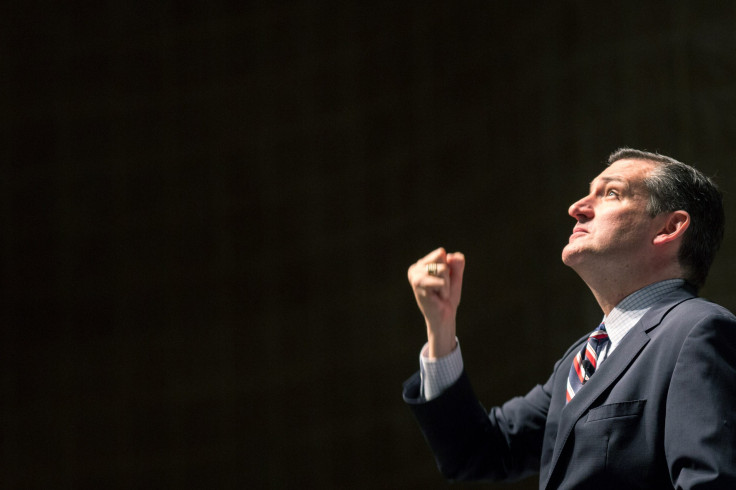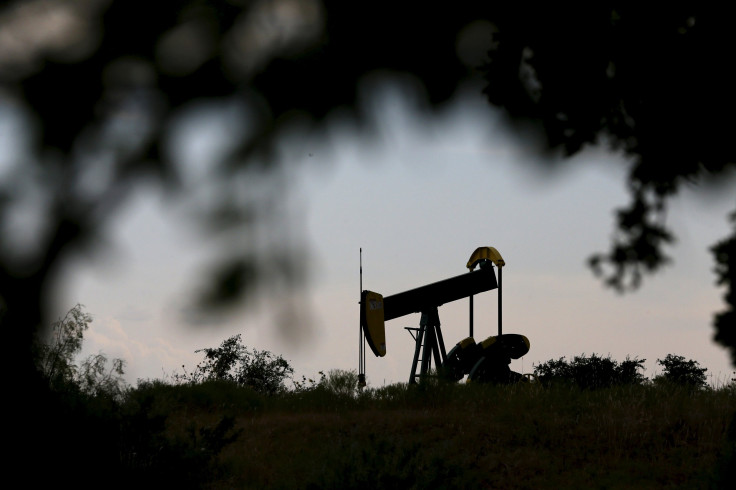In Texas Super Tuesday Primary, Ted Cruz Oil Industry Support Could Provide An Edge

On Super Tuesday, Texas Sen. Ted Cruz’s self-branding as champion of the oil industry could give him the edge he needs to prevail in an increasingly heated primary contest in his home state that has been called a must-win. While pro-energy policies are generally shared among Republicans, including presidential rival Donald Trump, Cruz stands out for his fidelity to pro-oil deregulation that could help make oil production in the state more competitive.
As global oil prices have taken a dive, causing many boom towns in Texas to go bust, Cruz’s strong support for policies favored by the oil industry that look to increase drilling and extraction only underscores the importance and urgency of the issue for the state’s tens of thousands of high-paid oil workers.
Energy policies are “absolutely” important for Republican voters, said James Beauchamp, the Republican chairman for Midland County in western Texas. Midland is located in the Permian oil basin, one of the biggest oil-producing regions in the state, and has not been immune to the volatility of international oil markets. “I think, moneywise, [energy issues have] probably translated [for Cruz] and certainly he has talked about energy issues and been fairly proactive about that in the past as far as campaigning.”

Cruz has been notably pro-oil and energy as a senator and on the campaign trail. He introduced a bill in 2014 that would further open up hydraulic fracking around the country, approve the building of the Keystone XL pipeline and increase offshore oil drilling. He has vocally opposed Environmental Protection Agency regulations championed by President Barack Obama’s administration that aim to cut emissions from carbon-heavy fuel sources. Cruz even opposed ethanol subsidies in corn-rich Iowa during this election cycle, a fuel the oil industry strongly opposes.
“Ted has the most comprehensive knowledge of the energy industry and energy policy of any of the candidates by far,” said Ryan Sitton, Texas’ railroad commissioner and a Cruz supporter. The Texas Railroad Commission, which operates out of Austin, is an elected body that oversees energy policies in the state. “Do I think that will attract voters in Texas?” he asked. “I absolutely think that will attract votes in Texas and I think it will attract votes across the country.”
Trump and Florida Sen. Marco Rubio, the latter another potentially strong challenger in Texas and other Super Tuesday states, have refused to promise an end to ethanol subsidies, but they have similar stances on many energy issues. Still, Cruz has seemed to be more vocal and focused on these issues that are so important to his home state. The oil industry has taken notice.
“If you think back to Cruz’s announcement for president and then in the immediate wake of that, [several] super PACs formed immediately. Some of them were fueled by oil money — very directly, very explicitly by oil money,” said Cal Jillson, a professor of political science at Southern Methodist University in Dallas. That super PAC support followed donations of more than a million dollars that went to Cruz’s Senate campaign war chest in 2012.
Cruz is the last candidate in the race who attracts major oil industry dollars. At the outset, he was in competition with pro-oil candidates like former Florida Gov. Jeb Bush, Louisiana Gov. Bobby Jindal and even former Texas Gov. Rick Perry. Those three have all dropped out of the race, paving the way for Cruz to assume the mantle of the oil candidate.
With the size and importance of the oil industry in Texas, it’s not surprising it would have the funds to donate millions to campaigns it sees as friendly. The oil boom in the late 2000s is generally credited with contributing to the “Texas miracle” when the state economy remained strong even as the U.S. dropped into a recession. Oil remained a strong point in the economy until global oil prices dropped and boom towns began to close as production prices became infeasible. Since then, some towns all over western and southeastern Texas have struggled to stay afloat and thousands of jobs have been lost.
Still, others aren’t completely convinced that energy policies and support for Texas’ oil sector will be that much of a boon to Cruz in the polls. Environmentalists say many Texans actually support environmental protections like federal emissions controls that Cruz seems less than excited about.
“It doesn’t matter where we go, who we talk to: we find broad support for environmental protections,” Andrew Dobbs, the program director for the Texas Campaign for the Environment, said. “He is the last gasper when it comes to denial of the fact of human-caused climate change.”
Cruz heads into Super Tuesday with a lead of 9.6 percent in averages of polls in Texas, although some recent polls show him with just a 1 percent lead. The situation looks good for the home state senator but he certainly can’t take a win there for granted in a race that has seen its fair share of surprises — not the least of which being the meteoric rise of Trump and his dominance in three of the four states that have voted so far.
“I think Ted Cruz has to win here tomorrow and even if he wins by just a couple points I think that Trump could spin that as a victory in itself,” said Thomas Brunell, a professor of political science at the University of Texas in Dallas. “You have to beat expectations, and unless it’s over a five-point victory I think Trump will have a credible argument that he quote-unquote won in Texas.”
© Copyright IBTimes 2025. All rights reserved.






















